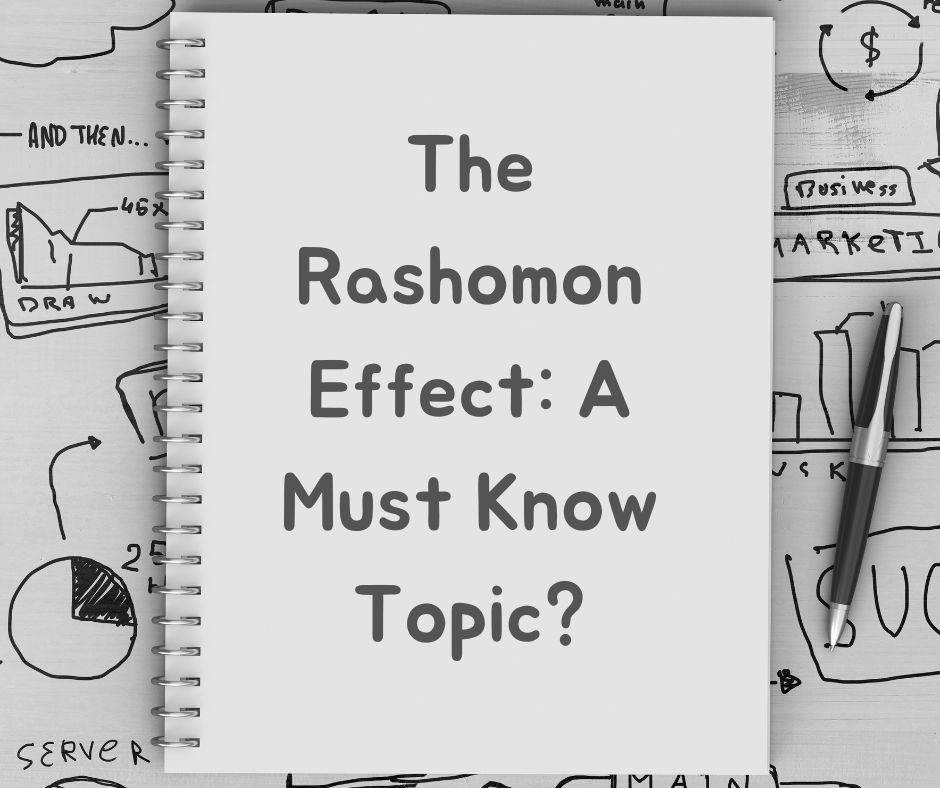Every person’s upbringing and personality color their interpretation of the world, therefore, their perspectives will always vary.
This is due to the fact that everyone involved in the events is viewing them and reacting to them in their own unique way.
What is the Rashomon Effect?
“The designation of an epistemological framework—or ways of thinking, knowing, and remembering—required to understand complicated and ambiguous events,” reads a definition of the Rashomon effect from a modern academic setting.
Rashomon effect is a writing and storytelling technique where an event has contradictory interpretations or descriptions by the individuals involved, providing different points of view of the same incident.
History of the Rashomon Effect
The term “Rashomon Effect” was coined to refer to the phenomenon depicted in Akira Kurosawa’s 1950 film Rashomon, in which four witnesses to the same crime provide wildly differing versions.
Numerous other filmmakers took cues from the movie and the Rashomon Effect. The Rashomon Effect is widely employed in the fields of psychology and law, far beyond the realm of film.
Many people have told many different accounts of what happened in the forest, and each has its own unique perspective. Each of the four people who discovered the bodies—a priest, a commoner, a woodcutter, and a bandit—has a unique story about how they came across the bodies.
The Author employs these four points of view to explore concepts like truth, deceit, and human fallibility. This is evidenced by the fact that people tend to believe their own stories about what transpired, even if they may not be completely reliable.
Examples of the Rashomon Effect
- Hero (2002)
- Elephant (2003)
- Gone Girl (2014)
- Vantage Point (2008)
- The Usual Suspects (1995)
Subjectivity vs. objectivity in human perception, memory, and reporting are all topics that this word explores, as well as the motivations, mechanisms, and occurrences of the reporting on the circumstance.
Rashomon’s message is that no matter where you are from or who you are, your view of the world will always be biased and subjective because your eyes are the only ones seeing it.




